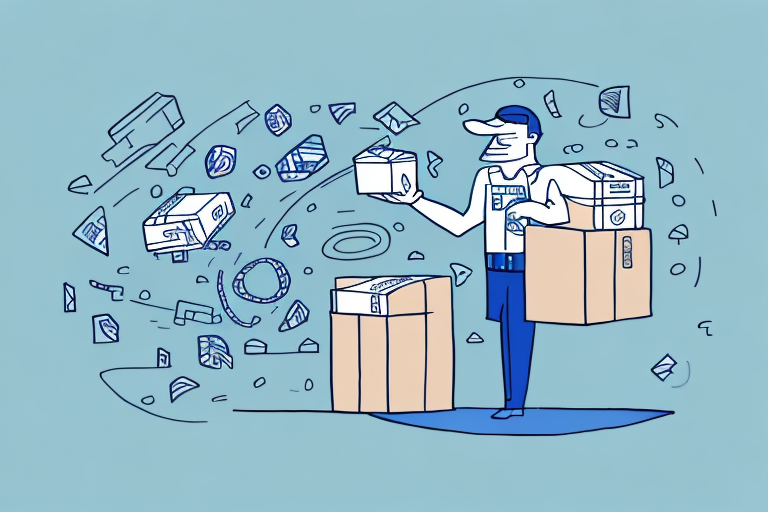Getting Started as an Independent Transporter
In today’s highly competitive market, the demand for independent transporters is increasing as businesses seek reliable and cost-effective logistics solutions. Becoming an independent transporter requires self-motivation, strong organizational skills, and the ability to operate autonomously. This guide provides a comprehensive, step-by-step approach to help you enter and succeed in the thriving independent transportation industry.
Introduction to Independent Transporting
Independent transporting involves providing transport services to clients as a self-employed contractor. Unlike traditional employment, independent transporters have greater control over their schedules, client selection, and operational methods. This flexibility makes it an attractive option for those seeking to balance work with personal commitments or looking to establish their own business without significant upfront costs.
With the advent of online platforms connecting transporters with clients, entering this industry has become more accessible than ever. According to the Bureau of Transportation Statistics, the transportation sector continues to grow, offering numerous opportunities for independent operators.
Essential Qualifications for Independent Transporting
- Driving Skills: Proficiency in operating commercial vehicles, including handling different types of cargo.
- Clean Driving Record: A valid driver’s license with a spotless driving history is crucial.
- Industry Knowledge: Understanding transportation regulations and industry standards.
- Communication Skills: Effective communication with clients and partners to ensure smooth operations.
Setting Up Your Transport Business
Obtaining Necessary Licenses and Permits
Every state has specific requirements for commercial driving licenses. To operate legally, you must obtain a Commercial Driver’s License (CDL). Additionally, transporting hazardous materials or oversized loads may require specialized permits. It's essential to consult your Federal Motor Carrier Safety Administration (FMCSA) guidelines and your state's Department of Motor Vehicles (DMV) for detailed information.
Be prepared for potential fees, written and driving tests, and training programs that may be required during the licensing process. Proper documentation ensures compliance and avoids costly penalties.
Choosing the Right Vehicle for Transporting
Selecting the appropriate vehicle is pivotal to your business's success. Consider the following factors:
- Type of Cargo: Determine whether you’ll transport dry goods, refrigerated items, or hazardous materials, as each requires specific equipment.
- Vehicle Maintenance: Regular maintenance ensures reliability and safety, reducing downtime and repair costs.
- Fuel Efficiency: Opt for vehicles that offer better fuel economy to minimize operational costs.
- Environmental Impact: Choosing eco-friendly vehicles, such as electric or hybrid models, can enhance your company's reputation and comply with environmental regulations.
According to the Environmental Protection Agency (EPA), transitioning to low-emission vehicles not only benefits the environment but can also lead to long-term cost savings.
Developing a Business Plan for Independent Transporting
A well-structured business plan outlines your business goals, target market, financial projections, and marketing strategies. Key components include:
- Unique Selling Proposition (USP): Define what sets your services apart from competitors.
- Target Market: Identify the industries or clients you intend to serve.
- Operational Costs: Calculate expenses such as vehicle maintenance, fuel, insurance, and licensing fees.
- Pricing Strategy: Establish competitive rates that ensure profitability while attracting clients.
Additionally, consider the legal aspects, including business registration, insurance coverage, and compliance with transportation laws. Networking with industry professionals and joining trade associations can provide valuable insights and opportunities.
Building Your Client Base
Finding Clients and Building a Reputation
Establishing a robust client base is crucial for sustained success. Start by creating an online presence through a professional website and active social media profiles. Utilize online marketplaces and transportation directories to increase visibility. According to the American Trucking Associations (ATA), digital marketing and networking significantly enhance client acquisition.
Providing exceptional service, maintaining punctuality, and communicating effectively will help build a positive reputation. Satisfied clients are more likely to refer your services to others, fueling business growth through word-of-mouth recommendations.
Networking with Industry Professionals
Networking is a powerful tool for independent transporters. Attend industry events, join transportation associations, and participate in trade shows to connect with potential clients and peers. Building relationships with other transporters can lead to collaborative opportunities and shared resources. Additionally, engaging with online forums and professional groups can keep you informed about industry trends and best practices.
Operating Your Transport Business
Managing Finances and Overhead Costs
Effective financial management ensures your business remains profitable. Track all income and expenses meticulously using accounting software tailored for transportation businesses. Allocate funds for routine maintenance, unexpected repairs, and other contingencies to prevent financial strain. According to the Small Business Administration (SBA), maintaining detailed financial records is essential for making informed business decisions and securing financing if needed.
Compliance with Industry Regulations and Standards
Adhering to industry regulations is non-negotiable. Stay updated with the FMCSA’s safety regulations, including hours of service (HOS) rules, vehicle standards, and cargo handling protocols. Non-compliance can result in significant fines, legal consequences, and loss of operating licenses. Regularly review regulatory updates and consider subscribing to industry newsletters or joining professional associations for timely information.
Understanding Different Types of Cargo and Handling Techniques
Proficiency in handling various types of cargo is essential. Each cargo type, whether perishable, hazardous, or oversized, has specific handling and transportation requirements. Proper training in loading, securing, and unloading cargo minimizes the risk of damage and ensures safe delivery. Investing in specialized equipment, such as refrigeration units or secure trailers, can enhance your service offerings and meet diverse client needs.
For more detailed guidelines on cargo handling, refer to resources like the National Institute for Occupational Safety and Health (NIOSH).
Challenges and Future Opportunities
Challenges of Independent Transporting and How to Overcome Them
Independent transporters often face challenges such as fluctuating fuel prices, competition, and regulatory changes. To mitigate these challenges:
- Fuel Management: Implement fuel-efficient driving practices and consider fuel hedging strategies to manage price volatility.
- Competitive Pricing: Offer specialized services or exceptional customer service to differentiate yourself from competitors.
- Regulatory Adaptation: Stay informed about regulatory changes and adapt your operations accordingly to maintain compliance.
Future Opportunities in the Independent Transporting Industry
The transportation industry is evolving with advancements in technology and shifts in market demands. Innovations such as autonomous vehicles, telematics, and digital logistics platforms present new opportunities for independent transporters. Embracing these technologies can enhance efficiency, reduce operational costs, and provide a competitive edge. Additionally, the growing emphasis on sustainable transportation opens avenues for eco-friendly transport solutions, catering to environmentally conscious clients.
According to recent industry reports, the growth of e-commerce continues to drive demand for reliable transportation services, offering sustained opportunities for independent operators.
Conclusion
Becoming an independent transporter is a rewarding venture that offers flexibility, autonomy, and the potential for substantial income. By following this comprehensive guide, developing a solid business plan, managing finances effectively, and staying compliant with industry regulations, you can establish and grow a successful transportation business. Embrace the challenges, leverage available opportunities, and continuously strive for excellence to thrive in the dynamic transport industry.








